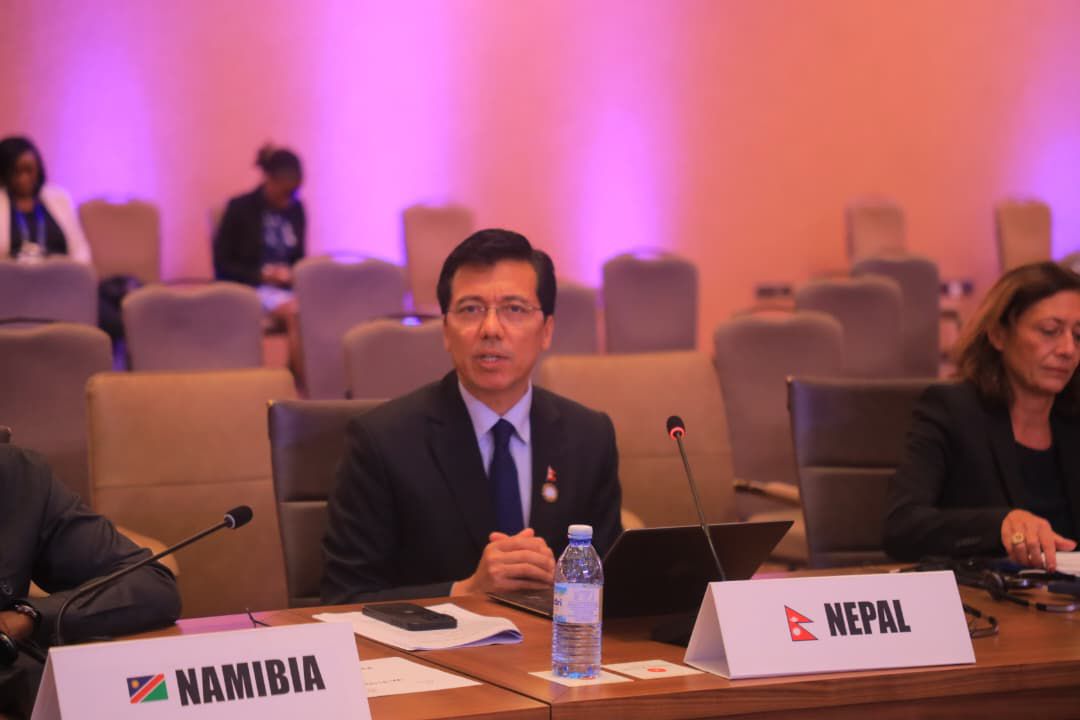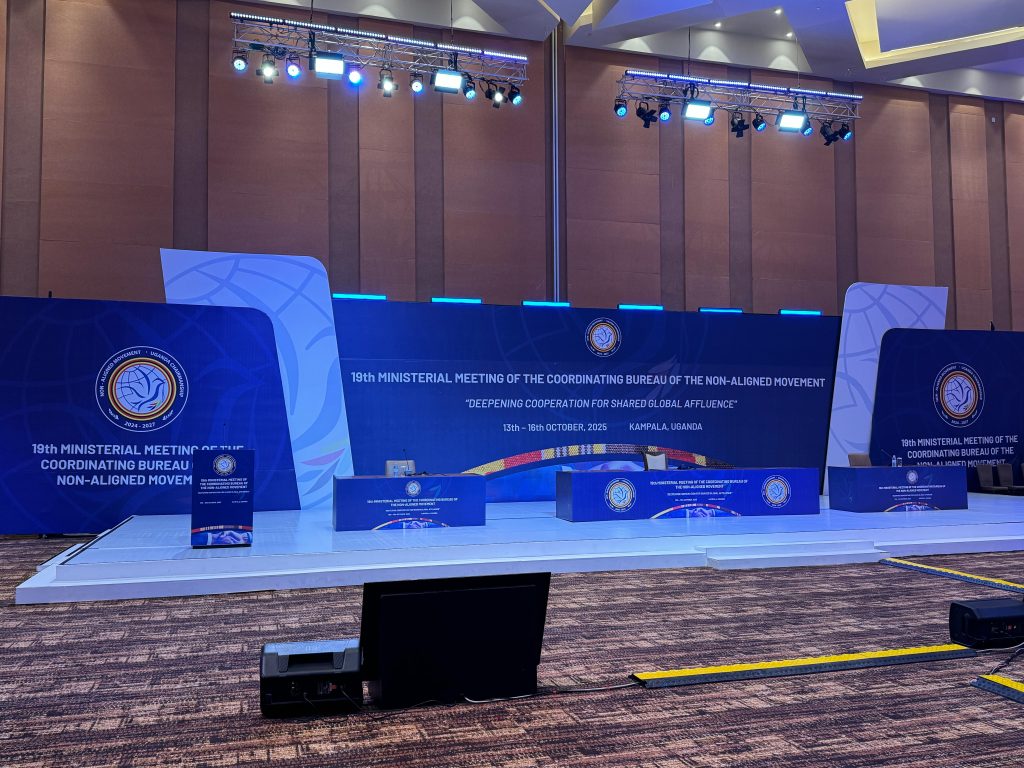
Kathmandu: Nepal has reaffirmed its unwavering commitment to the core principles of the Non-Aligned Movement (NAM), calling for stronger global solidarity, equity, and cooperation to address pressing global challenges.
Addressing the 19th Mid-term Ministerial Meeting of NAM in Kampala, Uganda, on October 16, Nepal’s Ambassador and Permanent Representative to the United Nations, Lok Bahadur Thapa, emphasized that the founding values of the Movement—sovereignty, equality, mutual respect, non-interference, and peaceful coexistence—remain more relevant than ever in today’s turbulent world.
“Since our leaders last met two years ago, global crises have only grown more complex and interconnected,” Ambassador Thapa said, citing geopolitical tensions, widening inequalities, climate change, youth unemployment, and unsustainable debt as key challenges testing the resilience and solidarity of the global community.
He commended the leadership of Uganda, the current Chair of NAM, for steering the Movement ‘with dedication amidst current geopolitical turbulence,’ and thanked the Ugandan government for its warm hospitality. Reiterating Nepal’s steadfast adherence to non-alignment as the cornerstone of its foreign policy, Ambassador Thapa said, “Nepal always pursues an independent, objective, balanced, and non-aligned foreign policy based on sovereign equality, mutual respect, mutual benefit, and peaceful settlement of disputes.”
Highlighting recent political developments, he informed delegates that Nepal is preparing for general elections in March 2026 to renew its democratic mandate—an affirmation of the country’s enduring commitment to democracy, good governance, and NAM’s values.
He also noted Nepal’s continued dedication to multilateralism and peacekeeping, underscoring its role as the largest troop-contributing country to UN peacekeeping operations, which he described as ‘a modest yet meaningful contribution to global peace and stability.’
Ambassador Thapa warned that while global wealth has reached unprecedented levels, its equitable distribution remains elusive, with billions still deprived of basic needs such as food, education, and healthcare.
He called for a reform of the international trade and financial systems, which he said remain skewed in favor of developed countries, leaving many in the Global South constrained by fragile infrastructure, limited resources, and technological divides.
To address these disparities, Ambassador Thapa urged the fulfilment of Official Development Assistance (ODA) commitments by developed nations, as well as debt relief, restructuring, and swaps for vulnerable countries, along with enhanced capacity-building and technology transfer tailored to the needs of the least developed countries (LDCs).
He stressed that achieving the 2030 Agenda for Sustainable Development must remain a global priority, adding that the timely implementation of the “Compromiso de Sevilla” from the Fourth International Conference on Financing for Development would be a key step forward.
Ambassador Thapa urged NAM to lead efforts in rebuilding trust in multilateralism and reforming global governance systems, including the United Nations and international financial institutions, to make them more inclusive and responsive to the needs of developing countries.

He emphasized the importance of South-South cooperation in mobilizing innovative financing, bridging capacity gaps, strengthening climate resilience, and promoting digital transformation.
“Narrowing the digital divide within and among countries is essential to build a peaceful, equitable, and prosperous global society,” he said.
Highlighting Nepal’s vulnerability to climate change, the Ambassador reiterated Nepal’s call for climate justice through scaled-up, predictable, and accessible climate finance, as well as technology transfer and capacity-building support.
He recalled the outcomes of the first ‘Sagarmatha Sambaad’ held in Kathmandu in May 2025, which echoed the global call for climate justice and sustainable mountain development—objectives that align closely with NAM’s vision for shared prosperity. Ambassador Thapa said that the principles and purposes of NAM are not mere ideals but “pragmatic pathways to address the root causes of today’s global challenges.”
“In a rapidly changing geopolitical landscape, NAM continues to serve as a beacon for multilateralism, equity, and inclusive development,” he said, calling on member states to deepen cooperation for a peaceful, prosperous, and sustainable future.